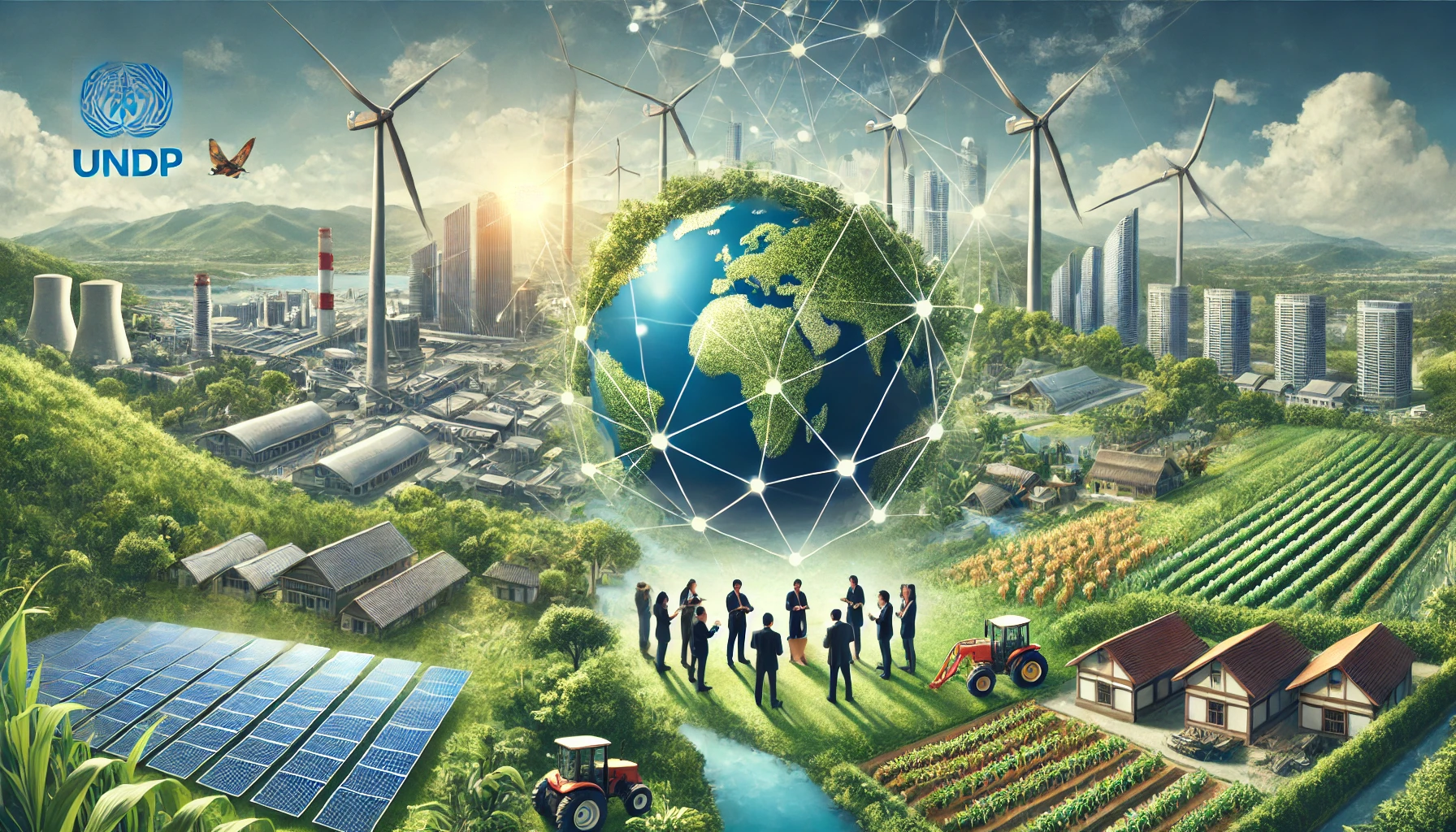Unlocking Global Development: How UNDP and IFIs Drive Sustainable Impact Together
The UNDP, in collaboration with International Financial Institutions, works to mobilize financial resources, provide technical expertise, and build national capacities to achieve the Sustainable Development Goals, particularly in fragile and crisis-affected regions. This partnership focuses on unlocking sustainable financing, supporting energy transitions, and fostering long-term resilience.

The United Nations Development Programme (UNDP), in collaboration with various International Financial Institutions (IFIs), outlined its comprehensive partnership model to maximize development impact in a brochure titled Triple Win: How Governments, IFIs, and UNDP Can Maximize Impact for People and Planet. This collaboration highlights how governments, IFIs, and the UNDP can unlock critical resources to address pressing global challenges, particularly in poverty eradication, climate action, and sustainable energy transitions. Through this joint effort, IFIs serve as "impact multipliers," offering both financial resources and technical expertise that help accelerate development projects, especially in fragile and crisis-affected regions. The UNDP’s International Financial Institutions Partnerships team emphasizes the need for strategic partnerships to achieve meaningful progress toward the Sustainable Development Goals (SDGs).
Addressing the Global Financing Gap
One of the central issues highlighted is the financing gap that many developing countries face in their pursuit of the SDGs. The report estimates a 4 trillion dollars annual shortfall, with 2.2 trillion dollars required specifically for energy transformation. This significant gap is exacerbated by high borrowing costs and debt burdens that prevent many nations from effectively responding to crises. UNDP, with partnerships in over 75 countries, works closely with IFIs to address these challenges by mobilizing critical financial resources and offering the technical support necessary to optimize the use of funds. Since 2010, UNDP has facilitated projects valued at nearly 3.4 billion dollars, with more than two-thirds of the financing directed towards fragile and conflict-affected regions annually.
Transforming Lives in Crisis-Affected Regions
A key example of the UNDP-IFI partnership’s impact is in Yemen, where, despite the ongoing conflict, UNDP and the World Bank have helped deliver essential services like healthcare and renewable energy to around 10 million people. This collaboration illustrates that development can continue even in the most challenging conditions. In addition, UNDP and IFIs support the development of Integrated National Financing Frameworks (INFFs), enabling countries better to leverage public and private finance for sustainable development. Indonesia's issuance of a blue bond and Uganda's climate finance facility are key examples of innovative financing approaches that are helping nations tap into new financial sources.
De-Risking Investments for Sustainable Energy
Another critical element of the UNDP-IFI partnership is its focus on de-risking investments to attract private capital for sustainable projects. The Africa Minigrids Program, a partnership between UNDP, the African Development Bank (AfDB), and other stakeholders, aims to provide clean, affordable electricity to 33 million people across 21 African nations through solar-battery mini-grids. By using cost-reduction strategies, the program makes these mini-grids more financially viable and appealing to investors. This initiative highlights the ability of strategic partnerships to not only address immediate needs but also build long-term resilience, particularly in energy-poor regions.
Building National Capacity for Long-Term Development
Beyond financial resources, the UNDP-IFI partnership is instrumental in building national capacity for effective project implementation. UNDP provides governments with technical advisory services, policy support, and institutional capacity-building to ensure that projects align with national development goals. For instance, in countries like Uganda and Indonesia, UNDP has worked with public expenditure frameworks that are aligned with the SDGs, facilitating the attraction of additional financing. This focus on enhancing national capacity is essential for empowering governments to take ownership of development initiatives, ensuring their sustainability over time.
Accelerating Financing for the Sustainable Development Goals
UNDP also plays a crucial role in promoting sustainable finance through its Sustainable Finance Hub. By supporting the development of Integrated National Financing Frameworks (INFFs), SDG-aligned budgeting, and investment practices, UNDP helps countries accelerate financing for the SDGs. UNDP currently works with over 85 countries to implement INFFs that align public finance with development goals while unlocking private capital. In Bangladesh, for example, UNDP helped integrate climate finance into national budgets, securing a 1.4 billion dollar loan from the International Monetary Fund’s Resilience and Sustainability Facility.
Through these collaborative efforts, UNDP, IFIs, and governments create a more resilient and sustainable global development framework. This partnership supports both immediate needs and long-term sustainability by strengthening national capacities and creating environments conducive to future investments. Ultimately, the UNDP-IFI partnership exemplifies how multilateral cooperation can drive substantial progress toward the SDGs, ensuring a better future for people and the planet.
- FIRST PUBLISHED IN:
- Devdiscourse
ALSO READ
UNDP and Germany Launch Global Platform for Responsible AI at Hamburg Sustainability Conference
Building Climate Resilience: UNDP’s Strategy for Capturing Adaptation Progress
UNDP Report Highlights Urgent Need for Action as 455 Million Poor People Live in Conflict Zones
France Contributes EUR 12 Million to UNDP for 2024: A Commitment to Global Development










